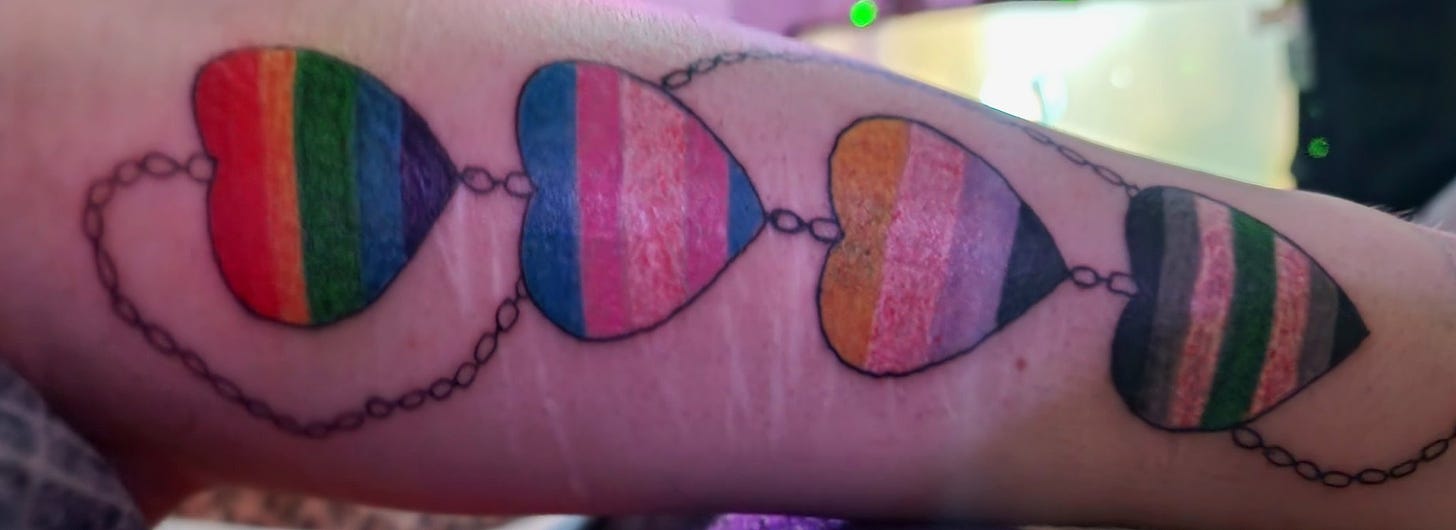Hi there, welcome to Sunday Sundries where I come chat to you about whatever’s on my mind.
I was thinking this week about the different ways we have of speaking to each other. I in no way have the credentials to go super deep into this, because blocking out all of the different things that go into a topic like this is waaaaay too big for a substack post, and definitely too big for my knowledge! But understand that, in everything here, every marginalisation and a hundred different nuances come into play.
But the basic question is this: how do you talk to other people, and why?
Do you talk up to your boss, to your peers, and down to people you think are your lessers? Most people do, and it’s far from a new phenomenon. See a classic sketch from the 1960s (please ignore the existence of John Cleese, I know what a prick he is):
That’s simple enough, right? Left guy: talks down to everyone considered not a peer, and that’s most people. Middle guy: talks up to left guy and down to right guy. Right guy: talks up to everyone.
And why? Because that’s each other’s place in each other’s minds.
So what’s the problem? Well, it’s systematic for a start, but we can only fix ourselves here so let’s go in that direction.
Talking up
Who do you talk up to? Who do you speak to as if they were your superior? Who do you show deference and respect to? Your bosses? Your spouse? Your friends? Everyone?
Some of these answers are fine. Showing respect to authority—provided that authority has proven itself to be owed that respect—is good. But note that caveat. Not all authority deserves your respect and deference.
That doesn’t mean you should, for example, call a cop a tosser when they’re trying to arrest you. Why? Because that would be counterproductive for you. There are times when respect and deference should be shown in order to save yourself the trouble you’ll get otherwise. That’s an annoying thing we sometimes have to do and you should just grit your teeth and get through it.
But there are others who actually earn those things, and they should be given. That doesn’t mean debasing yourself or tugging your forelock or whatever, it just means showing a little extra politeness.
Maybe that looks like letting yourself be taught something, even if it’s uncomfortable, because the person teaching knows more about it than you do.
Maybe that looks like accepting that your usual way of doing something could be improved, and acting on that.
Maybe that looks like interrogating your own biases and judgements, and working to correct them.
Nobody deserves your respect and deference by default, and screw anyone who tries to tell you that. Sometimes it behoves you to use it for your own needs, but nobody is owed it just for existing, or being rich, or being famous, or having power over you.
Also, don’t fawn over people. That’s just embarrassing.
Talking To
Talking to is about speaking to people as if they are on your level. Peers. Equals. For a lot of folk, this is actually the hardest thing to do.
I mean look, I live in England. The land of Brexit, TERFs, and politicians that are literally causing people’s deaths so they and their buddies can make yet more money.
I’m trans, disabled, mentally ill, poor, and autistic. Wanna guess how much I get talked down to?
OK, the majestic beard helps—as long as people think I’m cis. When that one comes out (and I’m not particularly subtle about it; I had all my gender flags tattooed on my forearm ffs), all bets are, once again, off. About the only things in my favour are my skin colour, and being educated, and while they do help, it’s not exactly a balanced scale.
Finding people that talk to you instead of down to you can be tricky even when you’re playing life on the lowest difficulty setting. The farther you get from easy mode, the harder it is to find someone who will genuinely and truly treat you as an equal.
Talking down
Having made the journey from “everyone thinks I’m a girl” to “everyone thinks I’m a guy” (and ignoring the bit where they’re wrong because this is about their perception not my truth), I can tell you there is a marked difference in how cishet guys treat me. Everything from talking about video games, to getting a male doctor to listen to what Cuddles (a cishet female) is telling him, it’s all different—easier—to be treated as a peer.
Your unconscious bias will show in your attitude towards people who are not like you, or who don’t conform as you think they should.
Remember: interrogate everything.
Because if you don’t, you’ll wind up being the jerk with the patronising tone, talking to someone like they’re 5 years old, then being all:
when someone calls you out on it, which you don’t want.
If you are called out, or called in, about something, your role is to listen, accept, and try to do better. Not to argue, get pissy, and take it out yet more on people you think are below you.
The often painful, actual truth is this: nobody is beneath you. Nobody is inherently lesser than you, and you are not inherently better than anyone else. If you’ve been taught otherwise, ask yourself why. The answer is usually that there is a benefit in distracting you with talk about immigrants taking jobs and trans people using bathrooms, so they can go do some other bad stuff—which will more than likely affect you negatively—while you’re looking the other way at a straw man argument.
Alright that’s all I’ve got for you today! Please share and subscribe if this, or any other of my posts, have been a good read for you! I’ll see you in the week with a new TaleSlinger post.






